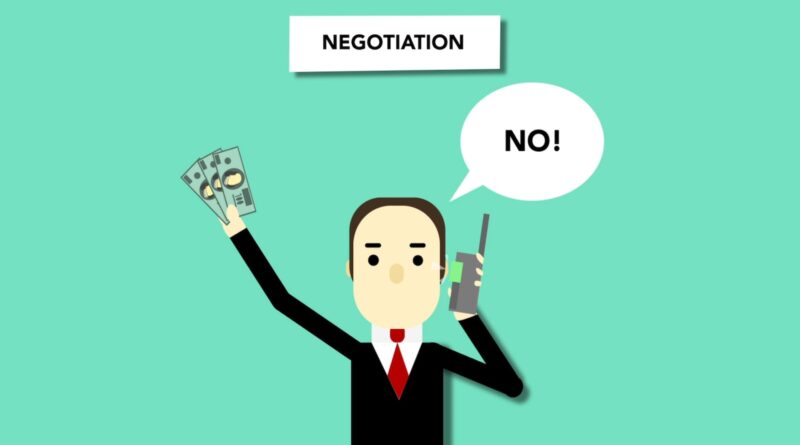Things to Do After Negotiating Creative Financing Terms
Once you’ve successfully negotiated creative financing terms for your real estate venture, your work isn’t done yet. Taking the right actions after negotiations can make a significant difference in maximizing the benefits of your deal and ensuring a smooth process moving forward. Many individuals underestimate the significance of what happens after negotiations. However, it is during this post-negotiation phase that the real work begins.
In this article, we will provide you with an expert roadmap, outlining the crucial steps to take after negotiating creative financing terms. Each step is designed to empower you with the knowledge and tools necessary to make informed decisions and confidently move forward in your real estate journey.
By following this comprehensive guide, you’ll be well-equipped to navigate the intricacies of the real estate process and position yourself for success.
The Importance of Taking Action
Negotiating creative financing terms can be a complex and time-consuming process. It requires careful analysis, strategy, and effective communication to reach a mutually beneficial agreement. However, the real success lies in what you do after the negotiation table. Taking action promptly and effectively is crucial to capitalize on the opportunities presented and mitigate potential risks. By following the recommended steps below, you’ll be able to solidify your position and set yourself up for a prosperous real estate venture.
Recommended Actions and Steps
1. Conduct a Comprehensive Review of the Agreement:
After negotiations, it’s essential to thoroughly review the finalized agreement. Pay close attention to the terms and conditions, interest rates, repayment schedules, and any contingencies. Understanding the intricacies of the agreement will help you avoid surprises and ensure that you fulfill your obligations.
2. Consult with Legal and Financial Advisors:
Seeking guidance from professionals experienced in real estate financing is highly recommended. Engage with legal and financial advisors who specialize in creative financing to ensure that you fully comprehend the legal implications and financial nuances of the agreement. They can provide valuable insights and help you make informed decisions.
3. Develop a Detailed Action Plan:
Create a comprehensive action plan to guide your real estate project. Outline key milestones, tasks, and deadlines to ensure a systematic approach. This plan will serve as a roadmap for executing the project efficiently, maximizing the benefits of the financing terms you negotiated.
4. Establish Effective Communication Channels:
Clear and open communication is vital throughout the entire process. Ensure that you establish effective lines of communication with the lender or financing party. Regularly update them on project progress, address any concerns promptly, and keep them informed about potential challenges or changes that may arise.
5. Implement Risk Mitigation Strategies:
Real estate projects involve inherent risks. Assess and identify potential risks associated with your venture, and develop strategies to mitigate them. This may include obtaining appropriate insurance coverage, conducting thorough due diligence, and establishing contingency plans to handle unexpected events.
6. Monitor and Track Financial Performance:
Stay on top of your project’s financial performance by implementing robust monitoring and tracking systems. Regularly review financial statements, budget reports, and cash flow projections to ensure your project stays on track. This allows you to make timely adjustments if needed and identify opportunities to optimize your financial outcomes.
7. Network and Seek Additional Opportunities:
Building a strong network within the real estate industry can open doors to new opportunities. Attend industry events, join professional associations, and connect with like-minded individuals. By actively seeking additional opportunities, you can expand your portfolio and grow your real estate business.
Tips and Resources
- Stay updated on market trends and changes in real estate regulations to adapt your strategies accordingly.
- Utilize online platforms and forums to engage with other real estate professionals and gain insights from their experiences.
- Consider attending workshops or seminars focused on creative financing to enhance your knowledge and skills in this area.
- Use financial modeling tools to analyze different scenarios and assess the potential impact on your project’s profitability.
- Leverage social media platforms and online marketing techniques to promote your real estate venture and attract potential investors or buyers.
The Benefits of Following These Steps
By taking action after negotiating creative financing terms, you position yourself for success in the real estate market. Here are some benefits you can expect:
- Maximized financial returns through effective management of your project and optimized financing terms.
- Reduced risks through proactive risk mitigation strategies and thorough monitoring of your project’s performance.
- Enhanced credibility and reputation by maintaining open and transparent communication with lenders and stakeholders.
- Expanded opportunities by leveraging your network and staying informed about industry developments.
- Improved decision-making through consultation with legal and financial experts.

Challenges and Potential Obstacles
While navigating the post-negotiation phase, you may encounter challenges and obstacles that could impact your real estate venture. Some common challenges include:
- Unforeseen market fluctuations or changes in economic conditions.
- Unanticipated project delays or cost overruns.
- Legal or regulatory issues that may arise during the execution of the project.
- Difficulties in managing stakeholder expectations and maintaining effective communication.
It’s important to remain adaptable, proactive, and responsive when facing these challenges. By addressing them head-on and seeking appropriate solutions, you can overcome obstacles and achieve your goals.
Final Words
Negotiating creative financing terms is a significant milestone in your real estate journey. However, it’s the actions you take afterward that truly shape your success.
By conducting a thorough review, seeking professional advice, developing an action plan, and implementing effective communication and risk mitigation strategies, you position yourself for optimal outcomes. Stay proactive, monitor your project’s financial performance, and leverage networking opportunities to expand your horizons.
Remember, taking action and following these steps will help you unlock the full potential of your negotiated creative financing terms.
Have you recently negotiated creative financing terms? What steps did you take afterward to ensure success? Share your experiences and insights in the comments below!
